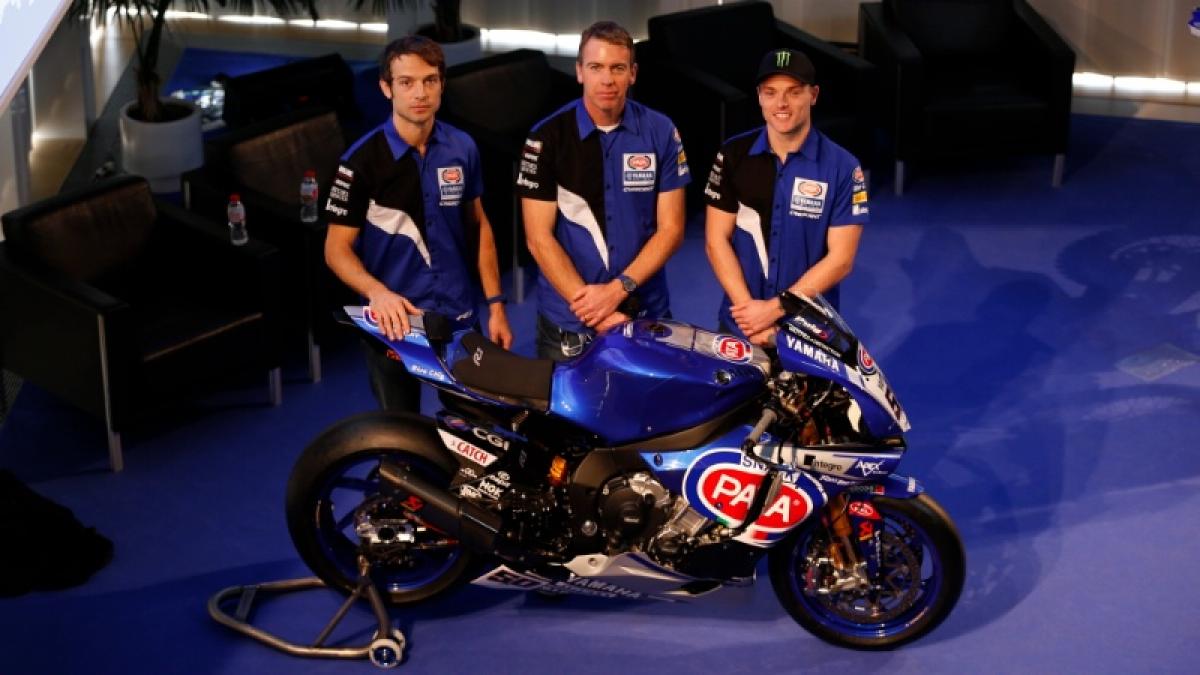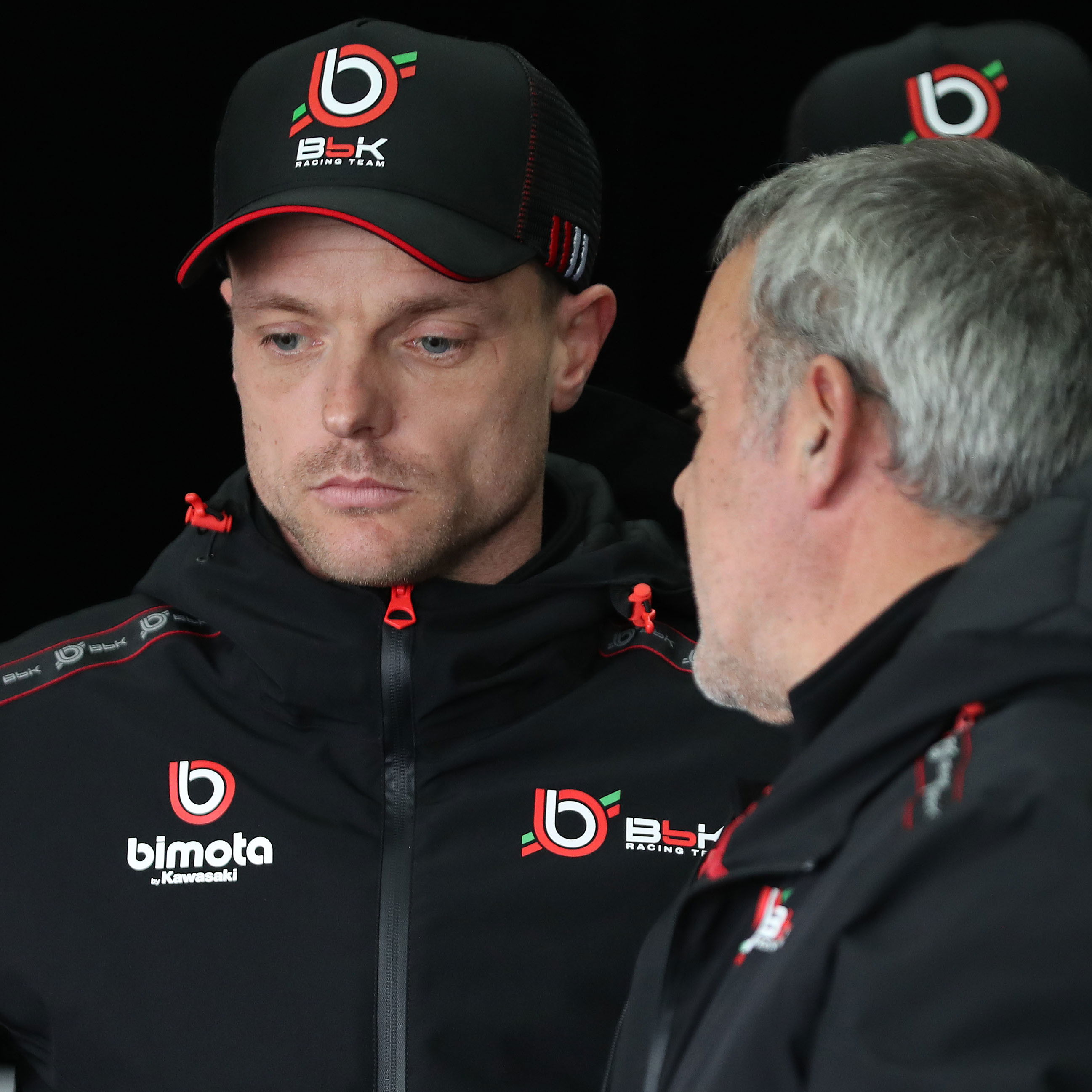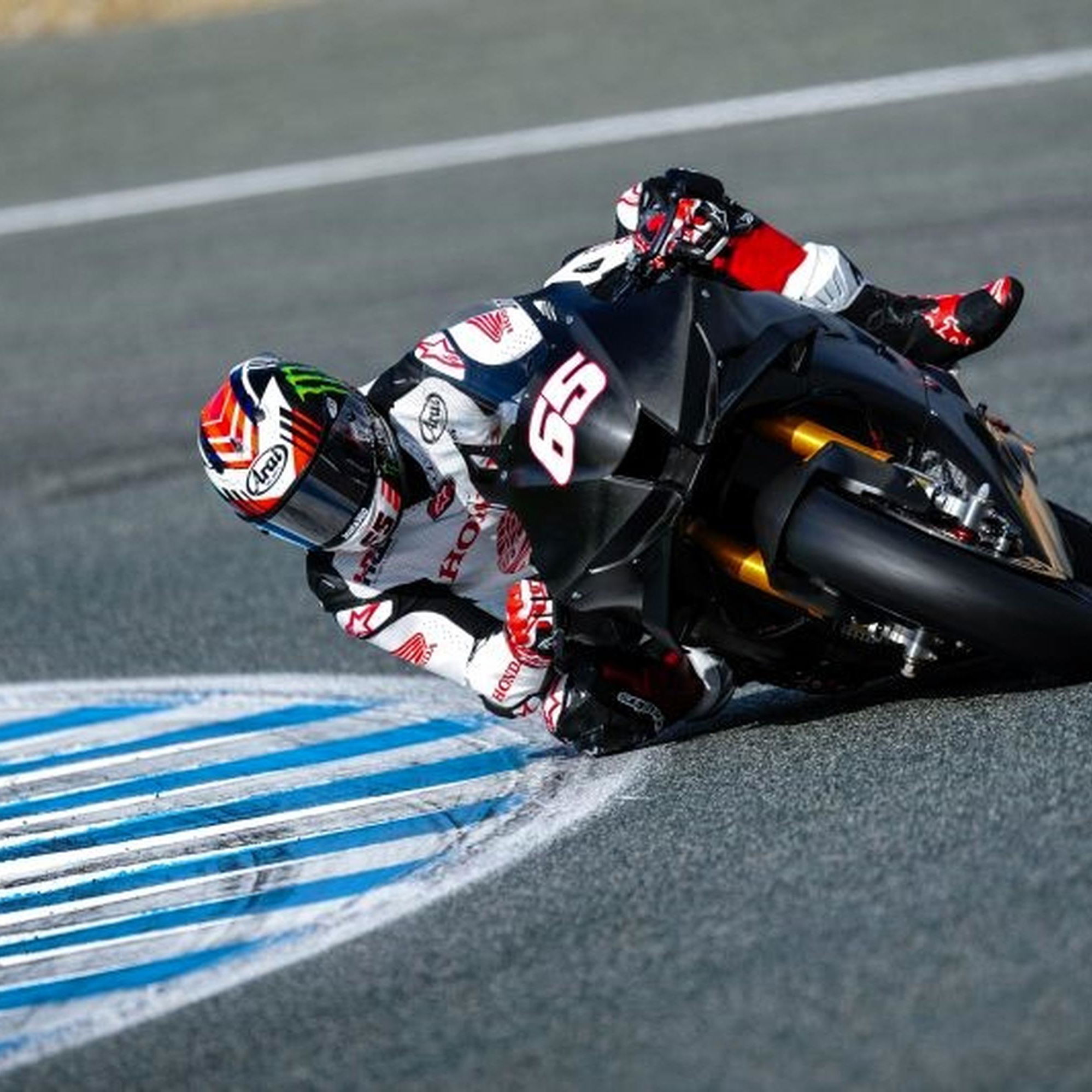EXCLUSIVE: Paul Denning (Yamaha) Q&A Interview

Question:
Is moving to Yamaha the biggest change that you have faced in your career?
Paul Denning:
Yeah, for sure. It's a big difference. The transfer to British Superbike, we were a private team with some support from Suzuki. Then to MotoGP not as a team owner, it was a dream job, paid without any risk to manage a team for the manufacturer, which was great. Then the move to World Superbike with Suzuki was back to the model of BSB where we were a completely private team. This one is in the middle. It's a partnership. We have responsibilities with Yamaha but it's a really nice partnership. It's early days, you could say the honeymoon period. Any difficulties we've faced so far we've been able to progressively solve together. Of course the level of technology on the bike is a different level altogether. Yamaha, as you can see from everything they have done today, is committed and supported very well by Yamaha Japan. Without Yamaha Europe's commitment there is no World Superbike, no MXGP. It's nice to have that partnership. Yamaha Europe is in Amsterdam. I can be in the office at ten o'clock in the morning from England, not getting up too early in the morning, have a meeting, go back the same night, make decisions and push things forward. With the long reach to Japan that's a very different relationship. These guys are supported by Japan and they're doing that work.
Question:
You had to leave Suzuki after many years...
Paul Denning:
Twenty years of working together. So that's a lot. Honestly though the personal relationship with the key people at Suzuki is very good. I personally felt great support from them. The people were not angry. We had a meeting last week with two Japanese to conclude the last details of the Suzuki agreement and they were very supportive. They gave their best wishes. Honestly speaking, I don't know if this is true or not, but for them I think World Superbike, with the comeback to MotoGP, they didn't want to let us down. Almost for me now, they have a good excuse to concentrate on GPs. We'll see what the future holds for that. From Suzuki's point of view it's maybe not such a disaster.
Question:
When you started the first interviews with Yamaha, did they come to you?
Paul Denning:
Let's say it's a mutual thing because I know quite a lot of people in Yamaha because of our business in the UK. We have a Yamaha shop as well as the others. When I was running the Suzuki GP team I became very friendly with Tsuji-san, Nakajima-san and also Furosawa-san, the big boss who has since retired. It was just a nice relationship. They seemed like good people. For me Yamaha seems like there is a level of investment and commitment like Honda but it's maybe more of a people company. On that basis it was quite an easy discussion, because we already knew each other.
Question:
Considering you had a difficult year with Suzuki in 2015 were you surprised that they chose you?
Paul Denning:
I had the same doubt for the same reasons but Andrea Dosoli, the project leader, is clever enough and experienced enough to understand the level of people we had, the level of commitment we showed. The effort that was made to take a bike that was not competitive. Our mistake this year [2015] was that we tried to do too much. We should have left the bike alone, as it was in Phillip Island and Thailand, and done our best. Maybe we would have finished seventh and tenth in the championship. But you want to win and that's the commitment that we tried to make. We made some mistakes but for the correct reasons. Andrea was in MotoGP the same time as me working with Hayate. I respect him very much. He's a clever guy and he's quite easy to forge a relationship with.
Question:
Is having the full factory support the biggest change?
Paul Denning:
Absolutely. Also for my team, we were just twelve guys. Basically on a race weekend we were just twelve guys. Now we have the Yamaha Europe engineers developing the machine in Germany with support from Yamaha Japan. It's completely different because it's doubled in size. When we're away in Phillip Island there are guys running engine tests and camshaft tests. It's a completely different level of resource. For sure it won't be easy because the level of Kawasaki and Ducati in particular is so high. You can not do it without the resources. Perhaps at one or two special races but not make a season of it.
Question:
So are you looking at 2016 as a learning year?
Paul Denning:
It depends who you speak to. If you speak to him [points at Alex Lowes] he'll maybe give you a calm answer but he wants to win the first race. So does Sylvain. But from Yamaha's point of view and my point of view the target is to be able to be as competitive as we can at the start. If we finish sixth we improve more. If we finish in eighth then we have to improve quickly. We have to make a start, see where we are and build up step-by-step to see if we can try to challenge for some race wins and try to be world champions in 2017. The Pata agreement is three years. The Crescent agreement is three years.
Question:
Are you ruling out a championship challenge in 2016?
Paul Denning:
If they win some races at the start of the year then maybe it becomes a different story.
Question:
How challenging has it been incorporating the Yamaha Europe engineers and staff into your team?
Paul Denning:
Not really [big]. Maybe there were some cultural challenges. There were some of my guys who were responsible for everything now who don't have to do it all. They're happy to have more free time but also unhappy that they haven't got the responsibility to do that. But everybody is starting to learn to work with a system with more people and a more systemised structure. Also, for me to have that support and development team that is responsible for that aspect of racing operation just makes so much more sense. Our guys were so far up against it last year being a development guy, being an R&D guy, being a testing guy, then coming to the race track and trying to engineer the bike for the track. Like I say, you can get lucky once or twice, but in general it's not the way to win. There have been some adjustments to make but the team is largely the same people.
Question:
Do you have a test team to help you throughout the year?
Paul Denning:
Well the Yamaha Motor Europe guys in Germany have a test bike. We have good riders like we saw on stage like Max Neukirchner. Especially Nico Canepa, who is a clever kid. We have good riders who can jump on the bike. We are hoping, having said that, that the sporting regulations... the championship starts in four weeks and we don't have any regulations. Anyway, it was proposed that the testing regulations would be relaxed and each rider would have eight days testing with their own team and their own bike. As we proposed to them, if we go testing with another rider we have to pay them separately. We're not sure the feedback is as good because they're not accustomed to the electronics or suspension or tyres. The results of the testing is less relevant. We are already paying these guys to do a job so why not go testing with them. That I think has been accepted but so far we haven't seen announcement on that.
Question:
What was your role in choosing the riders for this year?
Paul Denning:
It was very much a collaboration. It was a mixture of a very experienced rider, who has been there and done it. And a rider with the ambition and talent to ride at that level. We wanted to keep Alex because I've invested the last two years in him. Also from a Crescent point of view it just felt nice to continue with a rider that we believe in and to bring something to the party. Not just the mechanics and the trucks. It was an easy sell, especially after Andrea went to Suzuka and saw Alex ride there [in the 8-Hours]. He called me and said, 'OK, no problem with Alex.' He saw him lead the race for an hour and pull away from the R1, which was ridiculous.
Question:
As he was dominating the British Superbike series on an R1 did you ever consider Josh Brookes?
Paul Denning:
Honestly no. Not because of anything against Josh. [He's a] Great guy. He is not a close friend but a good friend. But in the cold light of day the experience of Sylvain Guintoli, being world champion two years ago, and sixth in the championship [in 2015] on the Honda, which he didn't enjoy, he didn't find a good match. He still made it happen and got some sensible results. He was consistent, did his best and was professional. Then Alex was champion in BSB in '13 with probably a deeper level of talent at that time but also the Honda was not the best bike. He's had two years of experience in World Superbike with the electronics, the tracks and the system. Why would you choose Josh over Alex? That's nothing against Josh.
Question:
In Jerez both Sylvain and Alex were testing without transponders. What was the thinking behind this decision?
Paul Denning:
That's interesting. We mentioned already the collaboration. I was late to the test because I had a sponsorship meeting. I turned up at the test and Andrea said that he had told the guys to not run transponders. I said that was fine. My choice would always be open information. Andrea wanted to manage expectation carefully and not have too positive or too negative feedback. In the end it doesn't make much difference because everyone knows the lap times. It's normal that two people have different approaches and different ideas but we seem to be able to work together and accept different, let's say, philosophies. But I have to learn. Andrea has now been at Yamaha coming up to two years. He very much knows the philosophy of the company; something that is new to me. I'll take my lead from him.
Question:
In terms of the R1's spec, it seems to have been built with the regulations of World Superbike class very much in mind.
Paul Denning:
Well, I think what I said on stage and what Tsuji-san said was that it really is built from the numbers of the M1. The chassis balance, stiffness. The bike works really good. In the Suzuka 8-Hour race I remember one of either Pol or Bradley saying that they thought the bike turned better than the M1. They were on Bridgestones there too. It's a really well engineered base. On the chassis dyno the bike will make 190 horsepower at the real wheel as a stock bike. So the challenge for all the teams is that the bike is so good to start with, it's a law of diminishing returns. The Suzuki was at 170 so it was easy to make a horsepower jump. The Yamaha is a lot of work to make a small improvement. It's a really solid base and I think with the technology they've pooled into that bike, it's an advance of any production bike in the past, for sure. That shows the level of the base of the bike.
Question:
Have you found that both riders have been delivering similar feedback and identifying the same areas of the bike that need improvement?
Paul Denning:
Absolutely, yes. Exactly the same. So whether it's the normal things with new electronics, throttle response or engine braking or backshifting. It's exactly the same. Also with one or two things with feeling, one has preferred one way and one has preferred another... We know the reasons why. In the debrief they say, "I like this feeling because it allows me to do that." The other would say, "Yeah, but for me that doesn't matter because I want to concentrate on this piece." Even if it's different, the reasons why are quite clear.
Question:
In 2015 it was clear that Randy de Puniet had lost motivation mid-way through the season. How important is it for the benefit of the team to have two riders that can really push each other?
Paul Denning:
The level that Sylvain's testing at now is between half a second and one second less than his full potential. He's being clever, easy, doing the work and all the time that we've been testing with Sylvain we haven't had the lap timer switched on on the bike. At the end of the run he would ask the lap time to understand whether the feeling had mirrored the lap time. It's quite a grown up approach. I think when a guy has won the world championship in 2014, as he did, and had a reasonable year - if not a very difficult one - last year, he sees this tool as something that can take him back to challenge for the title.
Question:
Yamaha has made a return in World Superbike for 2016. Could it make a return to World Supersport in the near future too?
Paul Denning:
It's not official but I believe there will be a completely new one in 2017, and Yamaha will be back with that.
Question:
Could that be with Crescent too?
Paul Denning:
To try to win in World Superbike you have to respect what Kawasaki are doing. They aren't doing MotoGP so its their main focus. BMW has no MotoGP and they have two good teams here. Ducati has enough resourses internally in Ducati Corse to make the Superbike like a mini-MotoGP project with electronics and development of the bike, especially with testing. The testing that they are doing... To think you can ride two riders in a Supersport or Superstock team... We did discuss with Yamaha at the start of this negotiation about planning a Superstock team with Crescent. I basically really didn't want to do that. When we discussed why they understood and agreed fully. It's not like MotoGP but we have 14 events and 28 races. You cannot afford to lose focus.
Question:
Will both riders have a 2016-spec engine ready for testing at the end of the week?
Paul Denning:
Yes, we have a new spec engine to run in either Portim?o if the weather is good or Jerez.
Question:
In terms of the new World Superbike schedule for 2016 - with one race on Saturday, the other on Sunday - are you in support of these changes?
Paul Denning:
I think it's fantastic. There are so many reasons why. Especially in England no one likes change. "I always have fookin' tea in the morning and toast with that!" Trust me, it's going to be so much better. I had a meeting with Donington Park recently and Yamaha UK, because Yamaha's backers are making a big event at Donington. The Donington guys were also against it at the start. They were not really for it. But, hang on. The attendance price will be for a weekend; Thursday night through to Monday morning if you're camping. [In terms of price] Less than one day last year. It will include paddock access. You are free to get into the paddock, to get close to the teams, close to the riders. You can stand outside the hospitality and get close to the riders after they've had lunch.
Also, from our point of view, what we can give back to our sponsors and to the fans is so much more. Race day was, excuse my language, a clusterf**k. we arrived at the track at seven in the morning. We did the warm-up at 8.40am. if there were technical problems... Last year, at the last race of the year was a good example. We DNFed with Alex because we broke the engine in the first race. There was a human error in swapping the engine for the second race. But you will get that human error [because of time constraints]. They knew it when they first fired the bike up and the oil pressure was down, but then there were ten minutes until pit lane opened. We said to Alex, 'Try but we think the engine might stop.' In the end it didn't make one lap. That wouldn't happen [with the new schedule].
People were saying that attendances were not so good on Saturday. But that was qualifying. I've been in racing twenty years professionally. I can't see the difference. If one of our riders does an amazing lap in Donington, let's say a 1m 27 or 28, none of us can see the difference. Don't tell me that you can. Sometimes it looks slower to make the lap time. The riders are slower, so precise and everything has to be perfect. It's only when you see the splits. If you just watch the rider you have to ask them, 'Did you have a really good lap?' Sometimes when the guy is out of the seat is the slowest lap. To really watch that is not much of a spectacle. But to turn up on Saturday and see a fist-fight and then take that fist-fight into day two... There could be revenge, or however many stories there will be to tell. The public entertainment at Donington, there is a music event on the Friday night and Saturday night with good quality music and very inexpensive camping. They are trying to collaborate with the local hotels to bring the cost of the local accommodation down. The plan is to make the weekend a more spectacular weekend event and I think that's one side of it; the live event.
The second side of it is that the TV numbers will be through the roof. If we happen to attract more sponsorship, because the commercial development in World Superbikes has been so tough over the last few years. To have a one hour slot for grid interviews, post-race analysis... It's not too challenging for a guy to say to his girlfriend, 'Let's just watch that or record that and watch it.' To sit down and engage for four and a half or five hours is not so easy. A one o'clock race on each day is great. It also means that after the races we can go and do Q&As with the fans in the village, which was impossible before, because it's leading into something the next day. I think overall there has been some negative reaction and I don't have that opinion just because we're working with Dorna. I have a strong belief that in the end it will be much better.
Question:
How do you view the overall strengh of the World Superbike series going into 2016?
Paul Denning:
We have now got two competitive BMW teams rather just a one-rider team. MV is still her and we've unfortunately lost Suzuki, they've been replaced with Yamaha. The championship will be a lot stronger. Nicky is a big attraction. I think he's riding that bike really well. He's strong and looks committed. He'll do a really good job. Josh has a bit of a bad boy image. He's the British champion. He's a fast Australian. We need that. You look at the depth of the field and it's much stronger and more interesting, in terms of bikes and riders.
When Dorna took over World Superbike they didn't really understand the points of difference between GPs and World Superbikes. Now they do. It's a slow transition but the team in World Superbike are now focussing on the differences. The fans can get more access to riders. The two-race format is something completely different. This understanding from Dorna was of GP racing as it was and MotoGP racing in the last ten years, so it's quite a big transition for them. For Javier Alonso to say, 'If you think that's right, go ahead and do it.' I'd still like to see more free-to-access video content in World Superbike. But we keep pushing for that, let's see.







